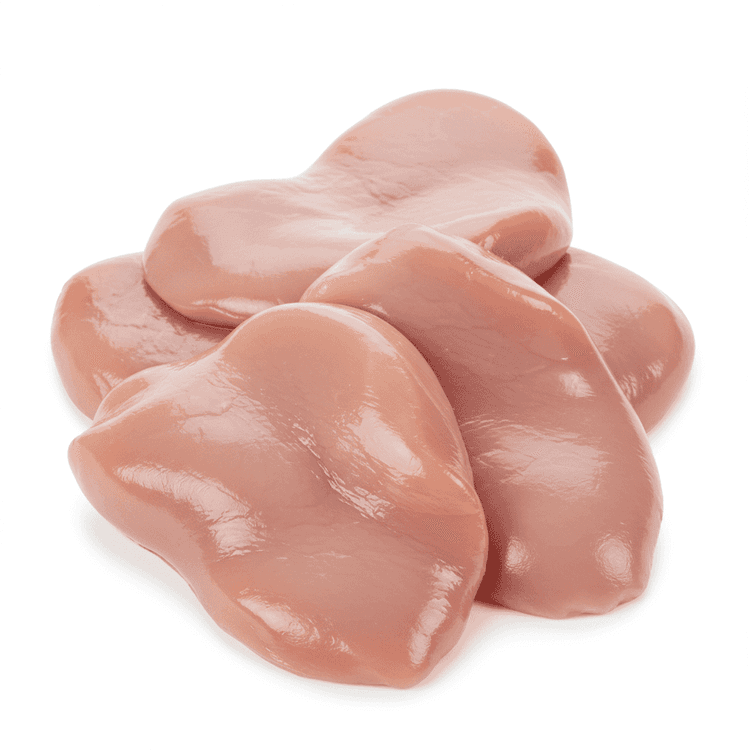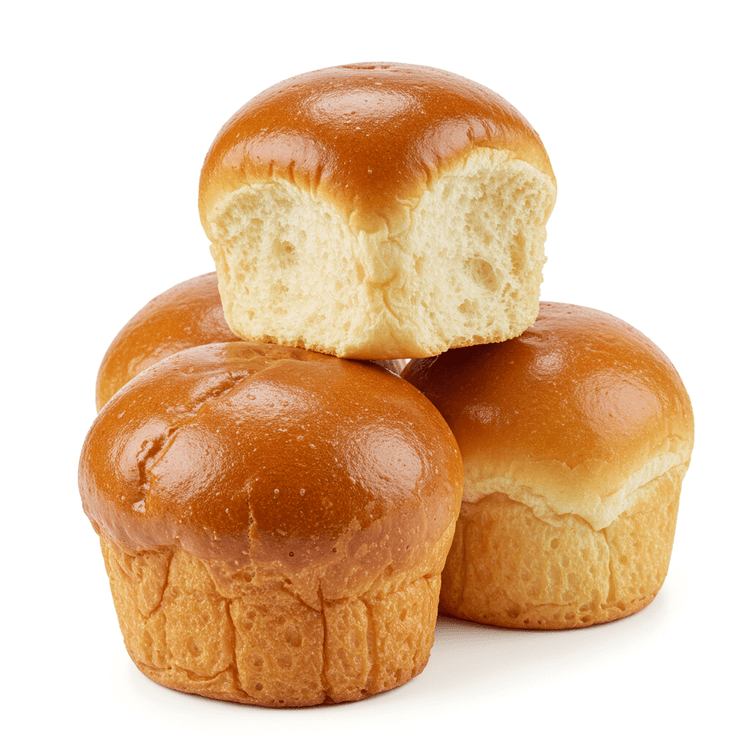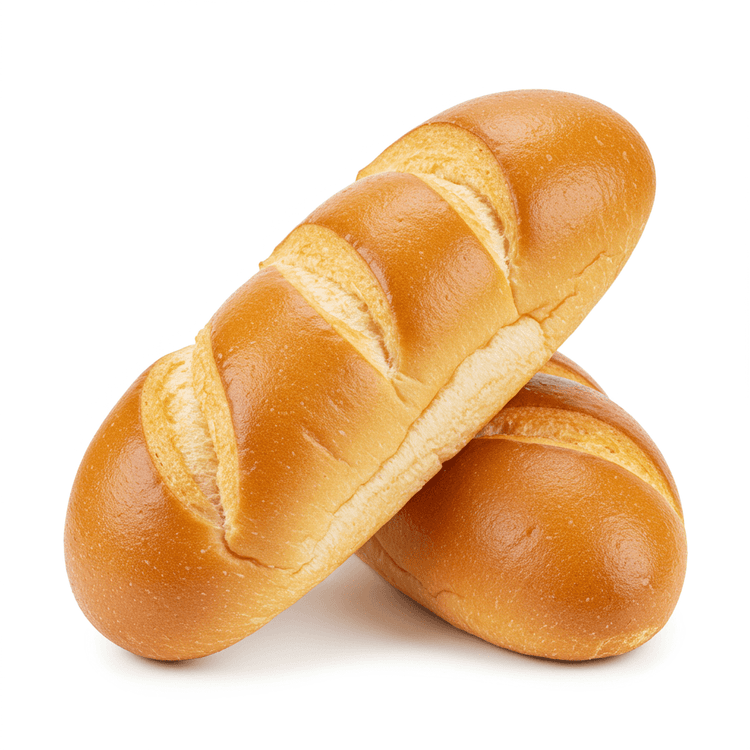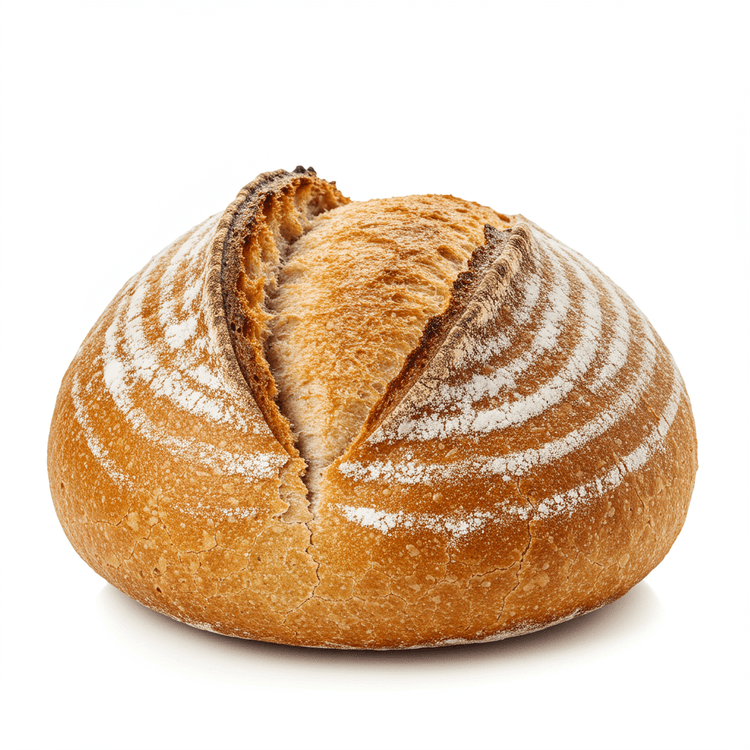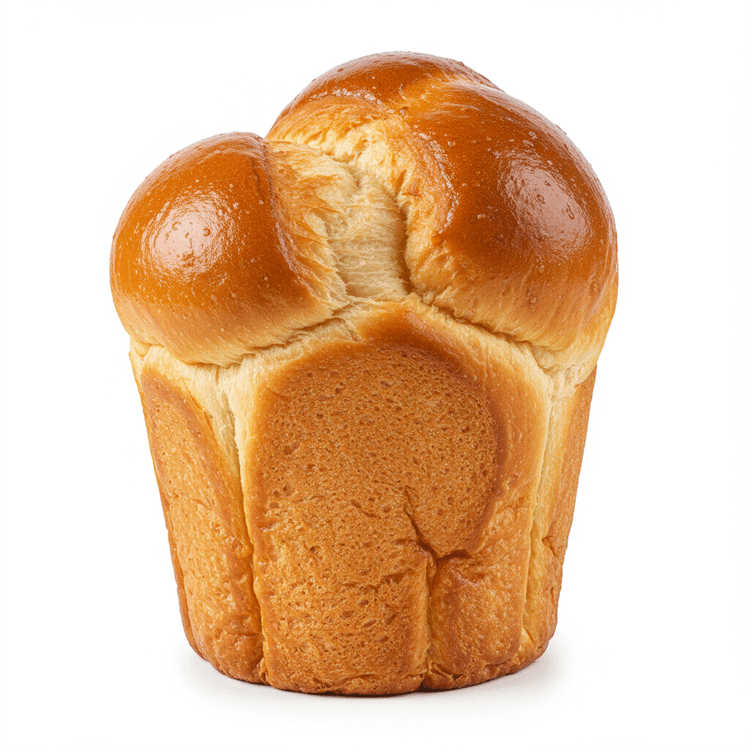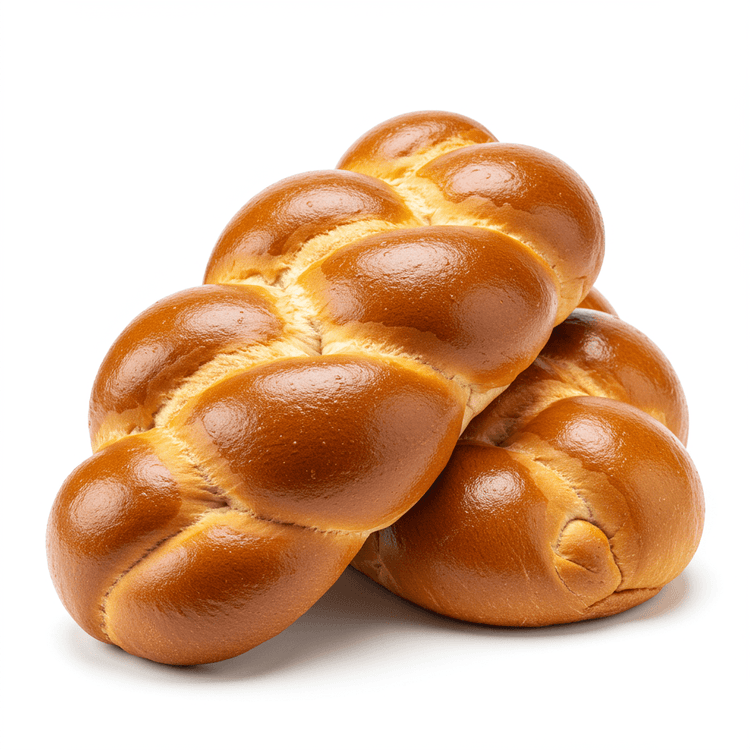
Challah
Challah is a rich, braided bread of Ashkenazi Jewish origin, traditionally eaten on Shabbat and Jewish holidays. Its soft, slightly sweet flavor and tender, airy texture make it a delightful treat. The golden-brown crust, often achieved through an egg wash, gives it a beautiful sheen. When you're looking for a delicious and versatile enriched dough bread, think of challah as the perfect choice.
Common Uses
- For creating decadent French toast: Challah's rich texture readily absorbs custard, making it exceptionally flavorful for French toast recipes. Its slightly sweet flavor complements both sweet and savory toppings.
- As a base for savory sandwiches: Challah's substantial structure and soft interior make it an excellent choice for hearty sandwiches. Its subtle sweetness adds a unique dimension to savory fillings.
- In bread pudding: The soft, airy crumb of challah soaks up custard beautifully, resulting in a moist and flavorful bread pudding. Its slight sweetness enhances the overall dessert experience.
- For festive holiday meals: Challah is a traditional centerpiece for Shabbat and Jewish holiday meals, serving as a symbolic and delicious addition to the celebration. It's often served with dips or used to make sandwiches with holiday leftovers.
- To make delicious croutons: cubed and toasted challah makes the most fantastic croutons with a delicate sweetness and slight density, they can really elevate your salads or soups.
Nutrition (per serving)
Nutrition (per serving)
Calories
276.8kcal (13.84%)
Protein
8.4g (16.72%)
Carbs
46.8g (17.02%)
Sugars
7.3g (14.58%)
Healthy Fat
3.9g
Unhealthy Fat
0.9g
% Daily Value based on a 2000 calorie diet
Nutrition (per serving)
Calories
276.8kcal (13.84%)
Protein
8.4g (16.72%)
Carbs
46.8g (17.02%)
Sugars
7.3g (14.58%)
Healthy Fat
3.9g
Unhealthy Fat
0.9g
% Daily Value based on a 2000 calorie diet
Health Benefits
- Provides carbohydrates for energy.
- Source of protein for muscle building and repair.
- Contains B vitamins, important for nerve function.
- May offer some iron, depending on the recipe.
- Can be a source of fiber, especially if made with whole wheat flour.
- Provides essential minerals like selenium and magnesium.
Chefadora AI is here.
Experience smarter, stress-free cooking.
Storage Tips
Challah is best enjoyed fresh. To maintain its quality, store challah at room temperature in an airtight bag or container for up to 2 days. For longer storage, slice the challah and freeze it in a freezer-safe bag or container for up to 2-3 months. Thaw frozen challah at room temperature or in the refrigerator before using. Reheating briefly in the oven can help restore its texture.
Marnirni-apinthi Building, Lot Fourteen,
North Terrace, Adelaide, South Australia, 5000
Australia
